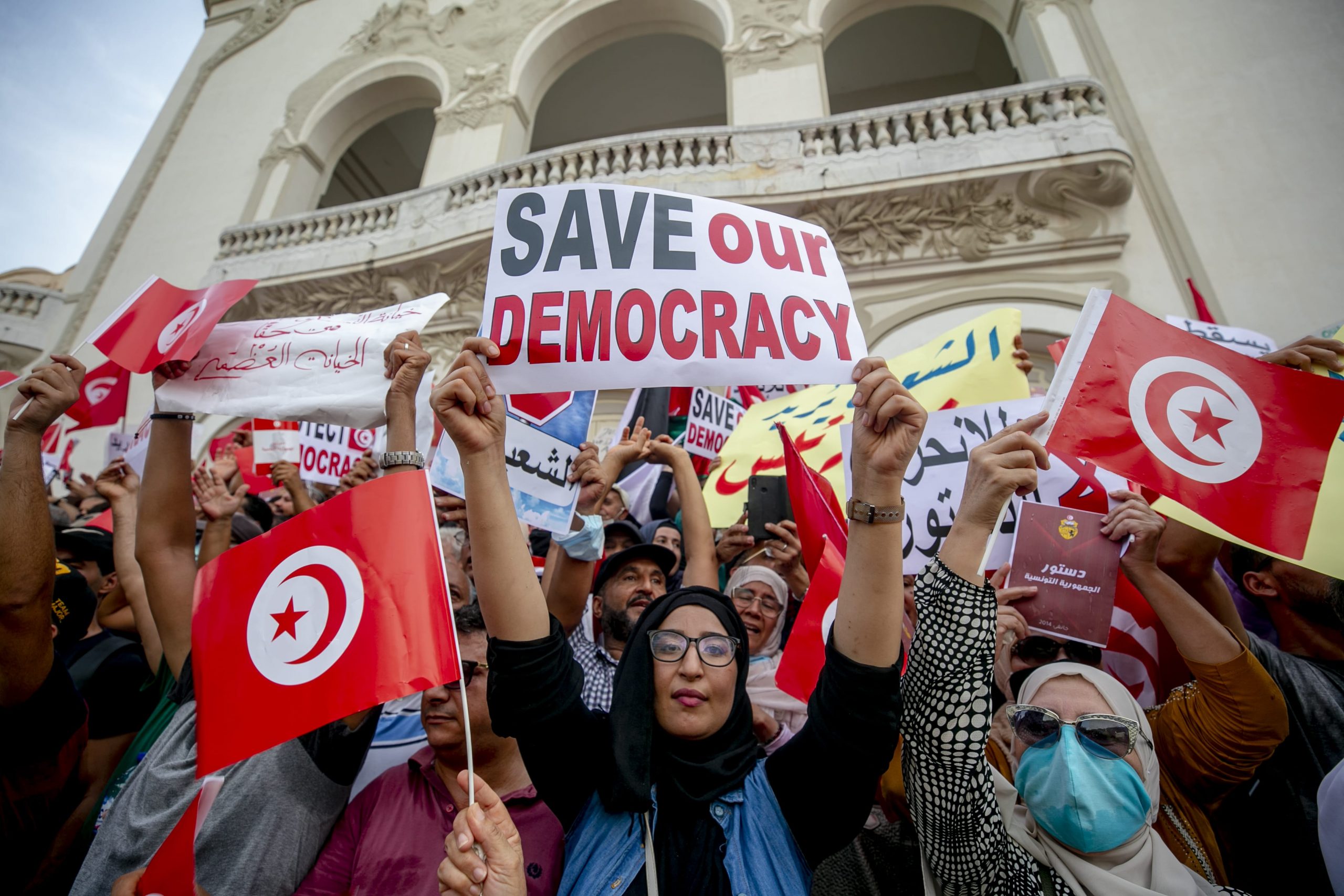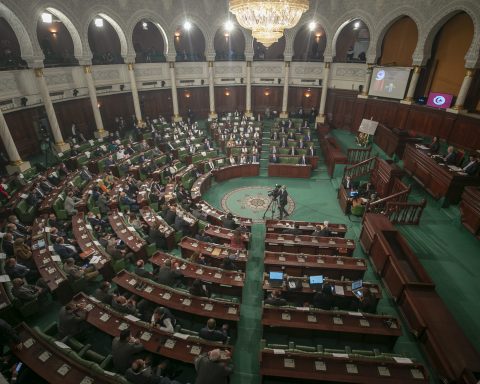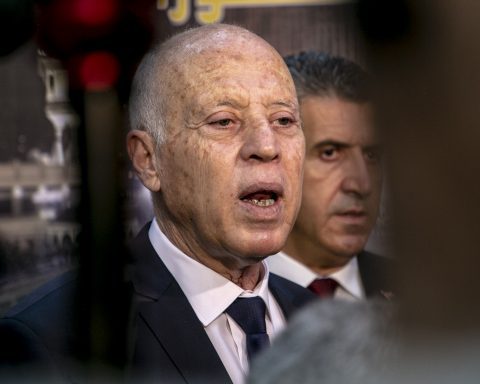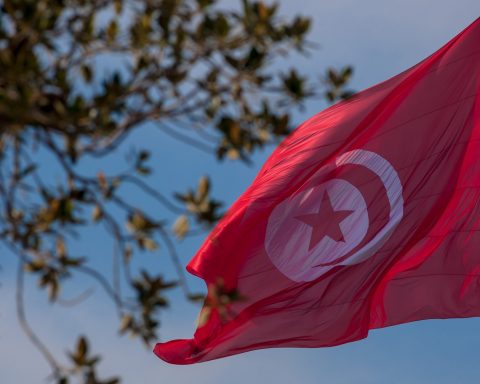The Tunisian Presidency issued a decree expanding its powers after Kais Saied suspended the work of the Assembly and dismissed Prime Minister Hichem Mechichi on July 25.
According to the statement made by the Presidency on September 22, the implementation of the “extraordinary decisions” taken on July 25 continued.
With the new decree, extraordinary arrangements were made regarding the legislative and executive powers, and the temporary commission that oversaw the constitutionality of legislative proposals was abolished.
In the statement, it was stated that legislative amendments on political reform will be prepared with the help of a committee to be established by decree of the Tunisian president.
Accordingly, the President of Tunisia was given the authority to issue “legislative texts” by presidential decrees after consulting the council of ministers.
Under the decree, the cabinet will be responsible to the President and not to the Assembly. The president will appoint the prime minister, determine the cabinet members, the policy, and the decisions of the government.
The President was also given the authority to submit any presidential decision to a popular vote.
Following the decrees, protests were held for the annulment of President Kais Saied’s extraordinary decisions, which concentrated legislative, executive, and judicial powers.
Demanding the end of the exceptional measures taken by the president, demonstrators chanted slogans such as “no stepping back from legitimacy,” “coup against state institutions is unacceptable,” “no fear, no intimidation; authority belongs to the people,” and “constitution, freedom, national honor.”
In a written statement from Tunisian General Labor Union (UGTT), the country’s largest union, it was criticized that Saied took over the legislative and executive powers with the Presidential decree and warned that “concentrating all powers in the head of state without fulfilling the conditions regarding the constitutional amendment is dangerous.”
In the statement, it was expressed that “the Tunisian Constitution is a starting point and reference point. It should be changed with a referendum as a result of a wide dialogue. Changing the Constitution and the election law is an issue that concerns all elements of society, state structures, institutions, parties, and civil society.”
UGTT rejected the decisions and stated that Saied’s attempt to amend the Constitution was “a threat to democracy and participation,” emphasizing that the only way out of the crisis was “consultation, partnership, collaboration, dialogue” on common national values.
Political parties such as Democratic Current, Tunisian Workers’ Party, Ennahda Movement, Afek Tounes, and the Republican Party accused President Kais Saied of “completing the coup operation” and “losing its constitutional legitimacy.”
On the other hand, 113 members of the Ennahda Movement announced their resignation due to “wrong political choices of the Movement’s administration.”
Among the resignations are eight lawmakers and several former ministers, including former Minister of Health Abdellatif Mekki. In a statement, officials from the party said they had resigned due to wrong choices by Ennahda’s leadership, which had led to its isolation and failure to engage in any common front to confront Saied’s decisions.
“The wrong political choices of the Ennahda administration led to the isolation of the movement and its failure to take an active part in any common front in the face of the authoritarian danger posed by the September 22 decisions,” the statement said.
The statement underlined that democracy within the Ennahda Movement had deteriorated, and that wrong decisions were made leading to political alliances that did not make any sense, did not benefit, and contradicted the commitments made to the voters.
Briefly, in Tunisia, it is observed that the decisions of President Kais Saied deepen the instability in the political and social atmosphere in the country. In addition, it is considered that the failure of Ennahda to follow a more active policy in the face of Saied’s decisions lead to a split.














